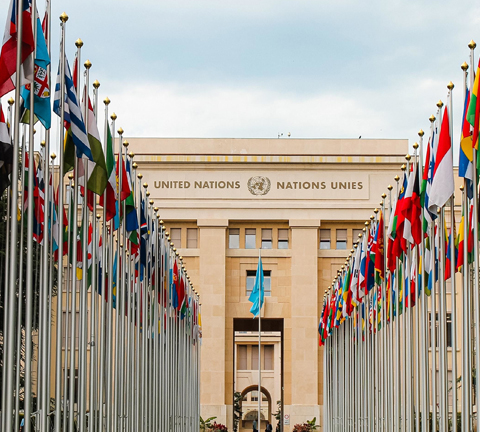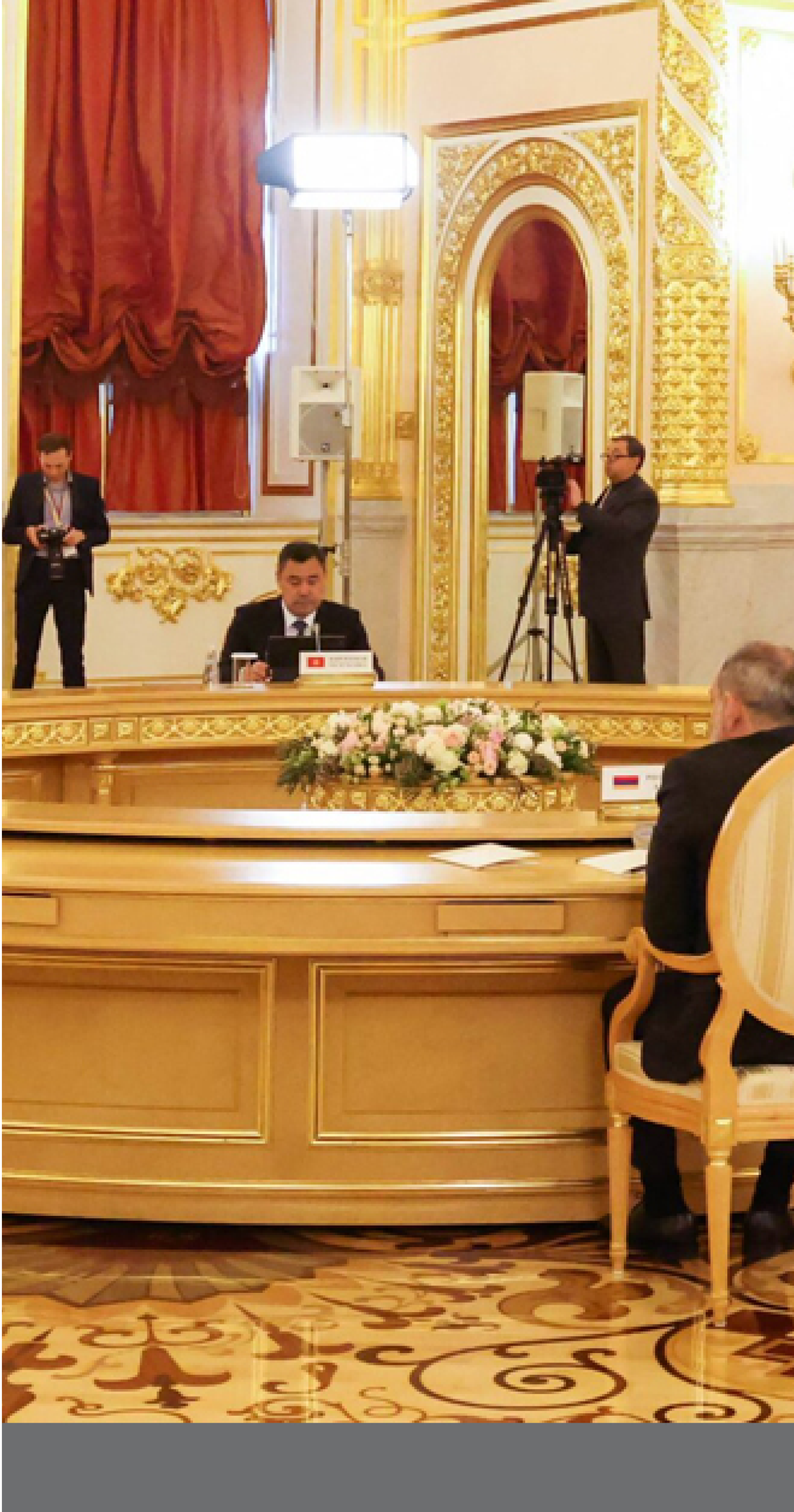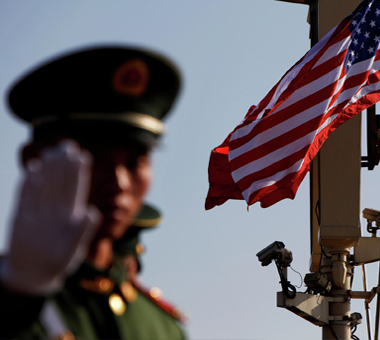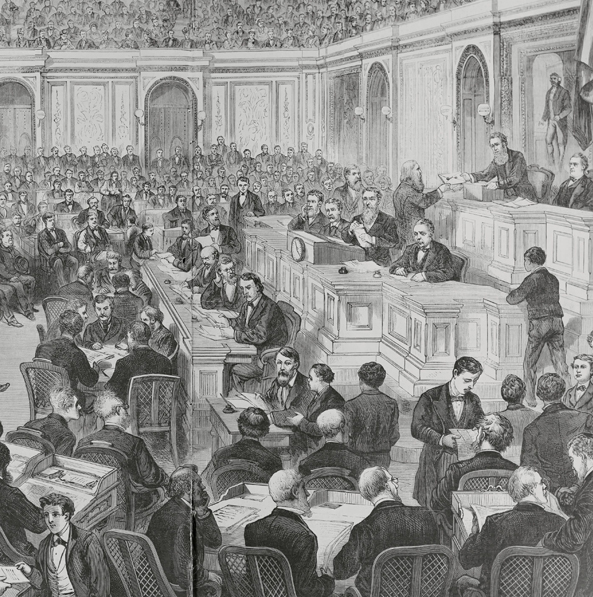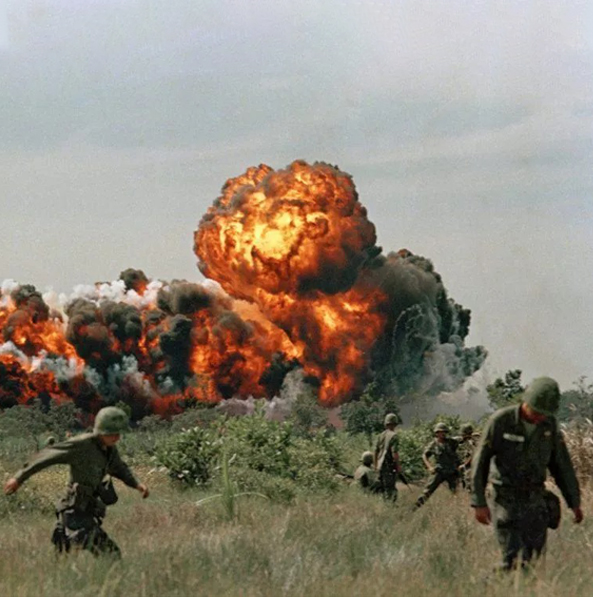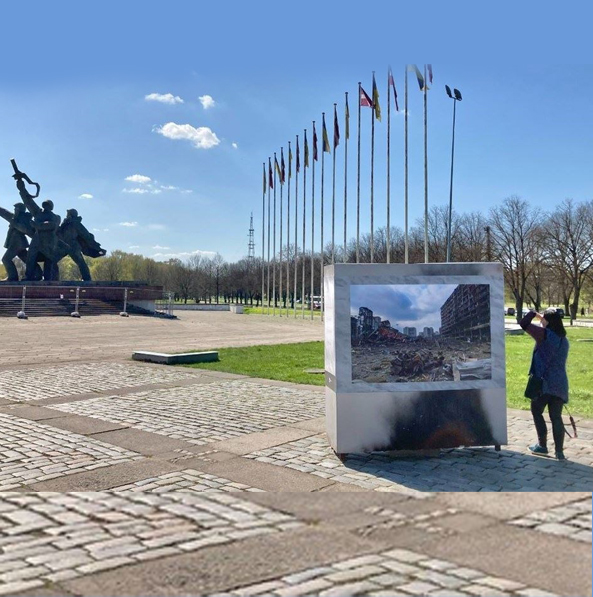The concept and purpose of diplomacy revolves around the realization and embodiment of communication between representatives of states, and bodies that speak on behalf of a particular people or a certain category of people. Diplomacy has multiple and diverse conditions and qualities according to the diversity of its representatives. The most important objectives of diplomatic action are the ability to achieve negotiation on the disputed issues and problems, as well as to come up with solutions on which all parties agree on. One of diplomacy's objectives is to promote what is agreed upon between the parties, which cooperate in various economic, social, and other issues.
It is self-evident that diplomacy is as old as civilizations and cultures are, as old as the act of communication between the various human groups known throughout history. Examples in this context are so many and numerous, for instance: the Greeks developed systems and concepts of diplomatic communication. Their civilization adopted the principle of compromise, either by mutual consent, or reconciliation and agreement, as well as the temporary local truce at during war. The Greeks had a system of public agreements, even treaties, along with alliances and sacred armistice, held in the period of the Olympic Games. Ancient China was characterized by the selection of envoys diplomats- virtuous and selected based on high competence, to represent their country abroad, in accordance with the call of the Chinese philosopher, Confucius. Philosopher Guang Xing called for adopting the value of peace as a solution to the various problems posed. He demanded that the state would allocate two-thirds of its budget to spending on communications and diplomatic missions.
As for diplomacy in Arab-Islamic civilization, it was a practical response to what the message of Islam called for, in terms of the enactment of rules and transactions governing individuals and states, respect for the charters and treaties concluded between states, kings, and rulers. The Arab-Islamic culture is rich in various fields, including diplomacy, in addition to what should characterize the ruler in his policy for the ruled, and what the ambassador should be.
If diplomacy revolves around the art of communication, the matter that entails solving disputed or agreed upon problems. So, what is the orbit, in which civilizational diplomacy revolves around? Is it a concept that takes its value and being from the concept of civilizational dialogue? What distinguishes civilizational diplomacy from other types of diplomacy? And why focus on the demand for civilizational diplomacy at this current time?
Civilizational Diplomacy is a Communicational Value
The concept of Cultural Diplomacy is still a modern concept, initiated by the "Organization of the Islamic World for Education, Science and Culture - ISESCO" in 2022, and it still needs a lot of knowledge research and intellectual and political construction. It also needs the concerted efforts of various actors in the field of international communication, from international organizations, institutions, centers, and representation bodies. The most important feature of this broach is work to ensure that a politician is a beneficiary, investing enough in what relates to culture and values.
The cultural aspect here is in the pluralistic cosmic sense, not in the concept centered on saying that one culture is superior to another. By the third millennium, problems and dilemmas of a global nature emerged, requiring international solutions, independent of extreme biasness to the interests of one side at the expense of a particular party. In this regard, we refer that the reference and writings on such subject are very scarce.
Today's world is constantly transformed by the information revolution in the world of telecommunication and communication; also, by the speed provided by the Internet in terms of the how instant information in various fields of life are accessed, in an unprecedented manner in history; today's civilizational time is characterized by the abundance of information, that one individual cannot fully grasp. This abundance of information had direct and indirect impacts on removing the various boundaries between all social groups on earth; whether they are borders in the name of what is religious, national, linguistic, or geographical.
It has become self-evident to say that this transformation, which has made the digital and information revolution dominate the world, will be a key factor in working to adapt many sectors and fields to the nature of this transformation, where such transformation is shaping the present and future of this world; in the education, trade sector, economy, and other sectors of life.
Just like others, the diplomatic political action across the world was affected positively and negatively by this transformation. Apart from visions and trends that see the information revolution negatively affecting what is political. internet and social networks play an important role in political communication, as these communication tools provide multiple sources of information, providing also an arena for public debate on political issues, on the basis of freedom and equality, compared to traditional media.
Such interactive tools' significance is increasing with the wide spread of their uses, interactive features, and ability to empower users with new tools for community and political participation. This importance of social networks, besides their impact on the outputs of the political process, has become a fertile ground in the field of political communication, both at the local and international levels [1].
Marcus Fanda, author of " Internet Development and Politics in Five World Regions " (2002) previously warned that "the relationship of the Internet to international politics is an independent one, as the Internet evolved through people working outside the frameworks of bureaucracy and politics, it will never be subjected to the classical rules of international relations, and will be outside the scope of the sovereignty and control of states". What Franda warns about, was realized the events of the so-called "Arab Spring", starting in Tunisia and Egypt 2011, where internet unprecedentedly had a pivotal role in making events accelerating.
What we are interested herein, as we approach the subject of civilizational diplomacy, is the emphasis on the various multifaceted communicative roles played by the Internet. The current challenge. we are also interested in the bet depends on internet investment in promoting a culture of civilizational and cultural dialogue among different peoples, civilizations, and states, while upholding the values of peace, along with the tendency towards resolving disputed issues between the parties, by resorting to the policies of dialogue instead of clash.
At a time when the world has become like a single village, due to the information revolution, in the world of telecommunication and communication, the fate of humanity today became the same, given the dilemmas that have befallen the world, related to environmental pollution, lack of water, transcontinental diseases, as well as other unprecedented dilemmas and problems. No doubt that addressing such dilemmas requires universal solutions, in which everyone and for all are engaged for the sake of everyone. Hence; the civilizational diplomacy derives its importance, and the value of communication on which it is based also has derives significance, in order to crystallize solutions, reduce plagues, and adopt new policies in industry, medicine, economy and others; to protect humanity's future.
Civilizational Diplomacy is a Realistic Human Demand
The purpose of civilizational diplomacy is not to replace various diplomatic efforts, such as traditional and administrative diplomacy in the relationship between states, or international and local institutions. Nor it cancels cultural diplomacy, which has an active and effective role; in breaking the ice between different parties and states across the world; via focusing on the importance of what is common between different peoples and states; in managing many files of common interests; in encircling and curbing the causes and reasons that create factors for resorting to conflict and violence. Neither it drops the religious diplomacy, led by clergymen, where the religious diplomacy plays an important role to present a correct image of religion (in its general sense), as a transcendent given that calls for values of dialogue, tolerance, and communication between different religions and cultures across the world, as well as reducing the exploitation of religion and its involvement in the circle of political conflicts and narrow interests, with the aim of containing extremism- a dilemma that has cast a shadow with the emergence of extremist groups, affiliated with different sects and religions.
Civilizational diplomacy, then, is an investment of various diplomats around the world, with the aim to take care of the human being. Thus, it is completely separated from the centralities that seek their interests only, even at the expense of others, and even if seeking such interests would come in the cost of corrupting the environment and human being himself.
It is known that the centrality, accompanying modern civilization, is the Western centralism, that imposed its perceptions of science, knowledge and politics, on the entire world, enhancing great differences between the countries of the North and the countries of the South- an issue that was clearly highlighted by thinker Edward Said, in his book "Orientalism", as other intellectuals in the East and West highlighted the same issue too. In the context of subjecting what is cognitive to what is political and authoritarian, a saying was promoted at the time the West (Europe) emerged to the world: "With the absolute specificity of the history of the West... Then by emphasis that societies that want to reach the degree of progress, the West reached, have no choice but to take into account the same reasons as Westerners; The danger of this project is that it logically justified Western expansion, the occupation of the world, and the extermination of civilizations."
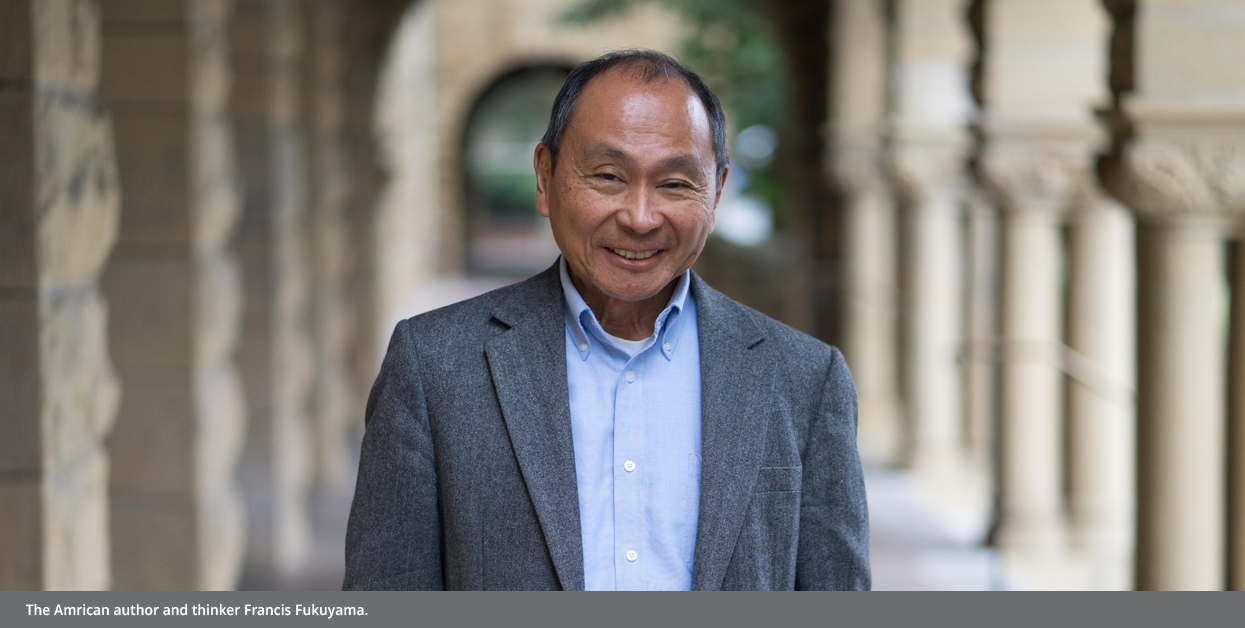
Thus, civilizational diplomacy is based on investing in the idea of dialogue between civilizations and cultures. instead of clashing with them. The civilizational diplomacy contributes to hiding the Western modernity's mistakes. History will not come to an end with the speculation of Francis Fukuyama, liberalism. The values of Western modernity are not perfect; it needs to be evaluated and rationalized, and its (objectification) view of a human being, which is excessive in exploiting the nature, was the cause of social, economic, and environmental dilemmas. The saying of the "end of history and the last man" fell down.
It is also absurd to limit the fate and future of the world to the clash and conflict of civilizations, which is the saying of the American "Samuel Huntington". The years that passed since this statement showed that the world does not want conflict. Here, we are not going to present criticisms that refute clash of civilizations statement, despite the fact that wars are an integral part of the humanity's history, rather; what should not be overlooked is that war and conflict are an accidental and temporary issue, appears and disappears for some reason. War is not a civilizational demand or purpose history moves to. The human being is not living for the purpose and aim of fighting, but to live and lives with the aim and purpose of getting to know and communicate. This is one of the most fundamental reasons why human civilization knows no boundaries among its various cultural and civilizational components. Today's contemporary civilization is an extension, it is also an investment of the legacy and potentials of various previous civilizations. Today, it became clearer that the fate of the world is one common destiny, in its food security, health security, and environmental security. Fukuyama, Huntington, and others think from within the closed context of Western centralism, which thinks only about its own interests.
The statement that the dialogue of civilizations remains reliable in looking forward to the future of the world, which is as old as man and civilization, was recalled by the French thinker, Roger Garaudy, through his book "Dialogue of Civilizations". This statement was also present in former Iranian President Mohammad Khatami's speech, which he delivered at the United Nations General Assembly 1997. Khatami believes that the idea of cultures dialogue is an attempt for understanding, in order to refute collision, as political and economic conferences, across the world, are held in order to strengthen the pillar of continuous dialogue between Peoples and nations.
Civilizational Diplomacy: Awaited Roles
The world today faced dilemmas it did not know before. A large part of which was the result of the outcomes of the industrial development, that characterized modern civilization, as we mentioned earlier. The problem, in such regard, is that the largest part of such dilemmas is threatening both humanity and nature, the matter which requires a collective effort in terms of thinking on a hand, and suggesting treatment methods on another. Hence comes the importance of civilized diplomacy, whether regarding spreading awareness of the dangers that threaten the humans and the world, or in terms of activating thought circles on the proposed solutions.
Today, the international community is keen to hold climate summits [2] in various capitals of the world. These various conferences, are only one of the global spaces that embodied in their debates, discussions. and communication, between all parties on the ground of civilizational diplomacy, concerned with the issue of human and nature, also concerned with the future and fate of next generations. Visions of discussion and diplomatic communication are no longer linked to the interest of one country without another or one pole without another, as much as they are to ways of preserving the interest of all for the sake of all. There is no doubt that the world experienced a difficult test COVID-19 pandemic spread out, which has made the world more realistically aware that the fate of the world is a common destiny, and that what threatens it is a threat to civilization itself.
In our assessment, this thinking, which evokes the interest of the world and the dangers that hover around it, will expand significantly and in multiplicity, according to the global multiculturalism. Hence comes the importance of civilizational diplomacy, which constitutes the general framework for communication on many such issues. For instance: the problem of famine and migration will not find a way to be solved, except by working to create a kind of balance between the countries of the South and the countries of the North. The solution for these problems will only come with a global and universal approach, in which what is political and economic would be related to what is human and civilized.
One of the complex dilemmas today is weapons of mass destruction, as a number of countries around the world have enough weapons to destroy the globe. The world today is going through a near-global crisis, between Russia, Ukraine, and the Western world. It is no secret that dragging the world into a nuclear war will be a lose-lose war. Therefore, apart from what is circulated in the media, everyone is looking for a way out of a war in which the prominent poles (Russia/America/China) would be in a confrontation. Hence, the importance of civilizational diplomacy emerges, in investing the experiences of the past concerning reducing the risks of the present, and in order to think about an alternative policy and system for the international community, that escapes the centrality and interest of one pole at the expense of the various poles. The result today is the loss of all or the survival of all, thus, today's worls needs a policy that thinks for all.
Commentaries:
[1] The Internet in our time, and its civilizational role, is associated with the pivotal role and transformation, that the world knew after inventing of the printing press by the German Johann Gutenberg 1436 AD. Despite the late emergence of the printed press in the Islamic world, the establishment of the first printing press in the Islamic world was during the reign of Muhammad Ali in Egypt 1820 AD, named the Bulaq Press. There is no doubt that the role of the printed press had a prominent and clear impact on various areas of life in the Islamic world, including the field of politics and diplomacy, by exposing reality The authoritarian politician of the Ottoman Empire, and the works of Abd al-Rahman al-Kawakibi (1855 – 15 June 1902) remain the best example of the role of printing in spreading political awareness among the public, as the book "The Natures of Tyranny" was printed in 1902.
[2] The beginning of the Climate Summit dates back to the 1997 Kyoto Protocol for the Implementation of the United Nations Convention on Climate Change in 1992. The Convention commits the industrial countries to reduce greenhouse gas emissions by 5% from their 1990 levels by 2012. In 2005 the first session of the Conference of the Parties to Kyoto was held in Montreal, Canada, where it was decided to form a group to follow up on the agreement, then conferences followed, the latest of which was in the Polish city of Katowice in December 2018, and at the Paris Conference. The previous one was agreed on measures to combat global warming.
The opinions expressed in this study are those of the author. Strategiecs shall bear no responsibility for the views and/or opinion of its author on security, economic, social, and other issues, as they do not necessarily represent the views of the Think Tank.
Keep in touch
In-depth analyses delivered weekly.
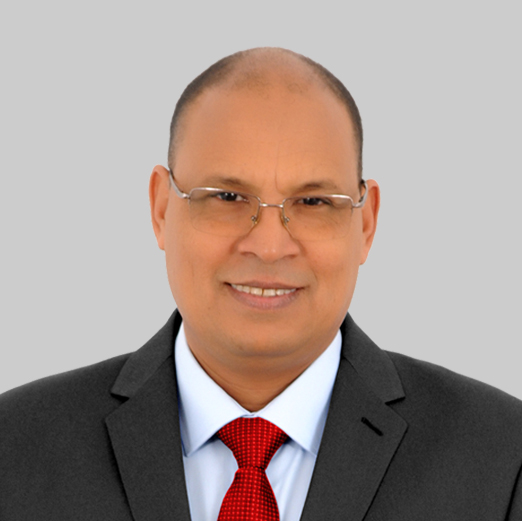
Related Analyses:







